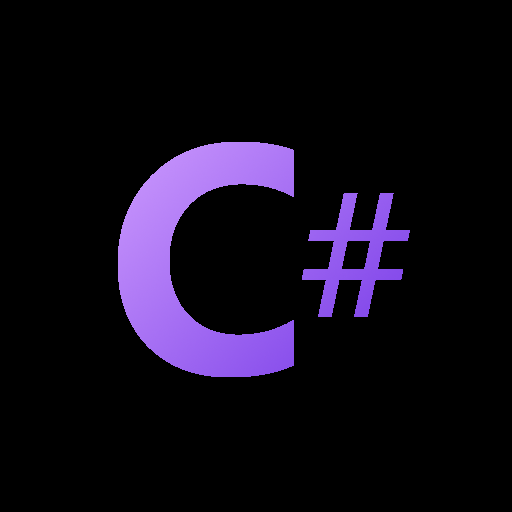

The guy has a history of making something that looks good and then selling it to governments. I’m surprised people took the bait for the second time.


The guy has a history of making something that looks good and then selling it to governments. I’m surprised people took the bait for the second time.


You can add mpv to FreeTube as an external player. With yt-dlp, it supports playing YouTube videos directly and in any quality. It also has a plugin for SponsorBlock integration.
Nah, too much work for a text/picture/video that does not need JS to be displayed anyway. If admins are not interested in implementing proper fallbacks, I’m not interested in visiting their site, sorry.
That page does not work without JS.
Well, jokes aside, people who install Arch usually want maximum flexibility out of their system (I have no idea why you would torture yourself like that otherwise). And after some time spent with Manjaro, I can confidently say that it greatly sacrifices your ability to tinker with the system in the name of user friendliness. A great distro to start with, but if you still like it after a couple of months, you probably didn’t need Arch in the first place.


Nah, Manjaro is Arch for toddlers.


Using a specialized tool for the task is the way to go, in my opinion. I use OpenStreetMaps when I need to look at the map. If I’m looking for some famous(ish) place, I look it up on Wikipedia and jump to OSM from there.


Usually the methods are not shared because streaming services would go out of their way to break them. Just like Youtube breaks yt-dlp every now and then. But Youtube is too big to implement any serious protection, so, downloaders usually win. I heard Crunchyroll is ripped via their mobile app, albeit modified. But specifics are better left in the dark.


I don’t believe the first code sample is a valid C# code. Switch-case statements expect constants for case conditions and runtime types are not constants, obviously. What you can do is something like this:
void MyMethod(object arg)
{
if (arg.GetType() == typeof(int))
MyTypedMethod((int)arg);
else if (arg.GetType() == typeof(int?))
MyTypedMethod((int?)arg);
else if (arg.GetType() == typeof(long))
MyTypedMethod((long)arg);
}
This will work, but the problem here is that inheritance will fuck you up. All the types we check in this example are sealed and we don’t really have to worry about it in this case, but generally this code is… just bad.
And yes, the correct way of implementing something like this is by using generic types. Starting from C# 7.0 we have this cool structure:
void MyMethod<T>(T arg)
{
switch (arg)
{
case null:
// Do something with null
break;
case int intArg:
// Do something with intArg
break;
case long longArg:
// Do something with longArg
break;
}
}
You’ll have to check for null separately, as you can’t use Nullable<> there, but overall, it looks much cleaner and handles inheritance properly for you.
This is called pattern matching, you can read more about it here: https://learn.microsoft.com/en-us/dotnet/csharp/language-reference/operators/patterns


It’s just a domain name, it has nothing to do with sites being safe. Just as any other site, they may be malicious, may be not, depends on who runs the site.


Well, it’s easy enough if you only use precompiled packages. Beyond that you should probably have a better understanding of what you are doing.


Arch with extra steps, AKA CachyOS.


I like to be a bit more explicit than necessary.


paru -Syu, you don’t want to forget your AUR packages, right?


I guess I’ll just add you guys to the “overzealous Witcher fans” and consider my point valid.


Yea, Croatia is the only place it got widely used. Is it some kind of historical elective course in Croatian schools? Been a coupe of times in Croatia, never seen Glagolitic in the wild, though. Maybe wasn’t looking good enough.


There is no single person responsible for Cyrillic script. It is mostly believed to be created by mixing and changing Greek and Glagolic scripts by the scholars of Preslav Literary School, which was indeed in Bulgaria. After a while, Peter the Great changed it a lot. And then Stalin stomped out almost all the deviations in the usage of the script.
The last part is mostly why it is considered Russian. A lot of languages suffered because of Moscow just forcing them to use the version of Cyrillic that Russians were using.


It’s a dead script that was not that common in the first place, in Kievan Rus’ it was even used as a form of encryption in XI—XVI centuries for how little spread it was. It is also very different from modern Cyrillic. So, saying “most Slavs don’t know how to read it” is a bit of an understatement. Noone knows how to read it, apart from some linguists and overzealous Witcher fans.
As some people poined out, I was talking about VK. A Russian social network that ended up in the claws of Russian government, which in turn ended up in massive political repressions of it’s userbase for posting “wrong” things.
He then made Telegram and used Russian government’s attempts to block it as a PR campaign. I guess that’s what made it so appealing at first, but now French government stepped in and we are going all over again.